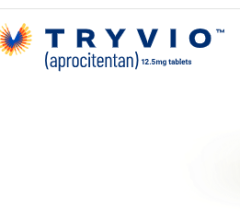
September 16, 2015 — Initial results of a landmark clinical trial found patients randomized to a systolic blood pressure goal of 120 mm Hg saw their risk of various cardiovascular conditions and death from cardiovascular causes reduced by almost one-third. Overall risk of death was also lowered by one-quarter compared to those randomized to the usual goal of 140 mm Hg.
The National Institutes of Health (NIH) sponsored the Systolic Blood Pressure Intervention Trial (SPRINT), which enrolled more than 9,300 participants age 50 and older with high blood pressure. Participants were assigned at random to a systolic blood pressure target of 120 mm Hg or the usual target of 140 mm Hg, then had the amount and type of blood pressure medication adjusted to achieve the different blood pressure targets.
The results of this trial, in which the University of Alabama at Birmingham and the UAB School of Medicine played major clinical and leadership roles, are expected to impact the way physicians across the United States and Puerto Rico treat patients with high blood pressure.
“SPRINT is a large, well-designed and well-conducted study, and is certain to influence the way clinicians manage the treatment of patients with high blood pressure and impact the decision-making of future national guidelines committees,” said Suzanne Oparil, M.D., principal investigator for the UAB hub of the SPRINT trial, UAB professor of medicine and director of the Vascular Biology and Hypertension Program in UAB’s School of Medicine. “While these results provide important evidence that treating blood pressure to a lower goal in older or high-risk patients can be beneficial and yield better health results overall, patients should talk to their doctor to determine whether this lower goal is best for their individualized care.”
The SPRINT study, which began in the fall of 2009, recruited approximately 100 medical centers and clinical practices throughout the United States and Puerto Rico. UAB was selected by the NIH as one of five hubs to recruit and direct almost 20 of these clinics from Massachusetts to Puerto Rico.
The SPRINT study is the largest of its kind to examine how maintaining systolic blood pressure at a lower than currently recommended level will impact cardiovascular and kidney diseases. More data in other areas will continue to be collected into 2016.
“Participants are still continuing in the trial to provide data on more end points and may continue on study drugs,” Oparil said. “SPRINT is a very large and important trial, however, the findings are still preliminary, and we will have to wait for the published paper for details.”
The NIH funded the SPRINT study in 2009 to answer one question: Will treating high blood pressure to a lower blood pressure goal — 120 mm Hg systolic compared to the traditional goal 140 mm Hg — reduce the risk of heart and kidney diseases, stroke or age-related declines in memory and thinking?
High blood pressure is a leading cause of death and disability in the United States and worldwide. More than 60 percent of people over age 65 have high blood pressure, and the number of people with high blood pressure is increasing.
The study population was diverse and included women, racial/ethnic minorities, patients with established chronic kidney disease or cardiovascular disease, and the elderly. The investigators point out that the SPRINT study did not include patients with diabetes, prior stroke or polycystic kidney disease, as other studies included those populations.
Investigators designed SPRINT to determine the potential benefits of achieving systolic blood pressure of less than 120 mm Hg for hypertensive adults 50 years and older who are at risk for developing heart disease or kidney disease, or who already had heart or kidney disease and were at risk of disease progression.
“About 70 million American adults have high blood pressure and only half of them have their condition under control. The preliminary data demonstrates why the cardiovascular community must continue to aggressively fight a condition that leads to stroke, kidney disease and heart problems for our patients,” said American College of Cardiology President Kim Allan Williams Sr., M.D., FACC. “The details of the SPRINT trial will be a contributing factor to future guidelines on blood pressure treatment targets. In the meantime, this data gives physicians more information to consider when working to improve outcomes for our patients with high blood pressure.”
For more information: www.uab.edu


 September 09, 2025
September 09, 2025 









